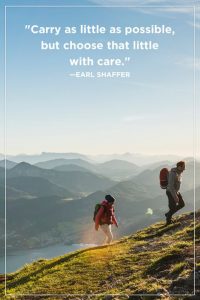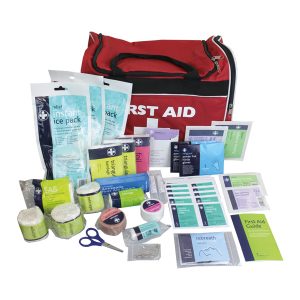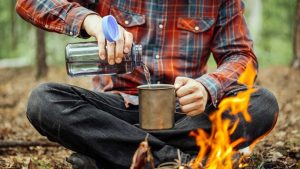Trekking and hiking is a fun way to rejuvenate your mind while exercising your body. However, nature is as beautiful as it is mysterious. So, it is always better to stay prepared for the unpredictable, exhilarating trip you have ahead of you.
Should I learn more about the area where I am hiking?
It is super important to know the correct routes and trails when hiking. But even through a health point of view, learning more about the environment of the area can be a helpful measure to take. Try talking to a park ranger about what you might need to keep yourself safe and free from possible dangers. The park ranger may even tell you about any toxic flora and fauna that you should stay away from. Check out the weather predictions and decide the ideal time to go for a hike in that place. Take the necessary precautions such as sunscreen, hats, umbrellas, raincoats in order to protect yourself from possible sunburns or impending colds.
Should I consult a doctor before going on a hike/trek?
Better safe than sorry! It is always a good idea to consult your doctor before going on a hike/trek. The doctor may ask for blood tests to check your hemoglobin levels and assess if you are fit enough for the journey. If you have special medical conditions such as hypertension, diabetes or other allergies, your doctor will prescribe you suitable medications in the correct dosages. Try not to opt for over-the-counter drugs because some of these drugs may have sedative effects which may render your sleepy and tired throughout the whole trip.
How can I gear up for emergencies?

The main purpose when packing for a trek is to pack the most critical things. Confused as to what to pack? Don’t worry; The Mountaineers have created an amazing list called the 10 Essentials. The items on this list aim to help you respond to emergencies and give first aid. With these items, you should be able to at least spend one night outdoors if need be. So here’s what the list comprises of:
1. First aid kit
2. Navigation: map, compass, and GPS
3. Sun protection: sunscreen, sunglasses, hat
4. Insulation: jacket/raincoat, extra layers
5. Illumination: flashlight, lantern, or headlamp
6. Fire: matches, lighter, fire starters
7. Repair kit: duct tape and multifunctional tool
8. Nutrition: at least an extra day’s supply of no-cook, nutritious food
9. Hydration: water and/or means of water purification
10. Emergency shelter: tent, space blanket, tarp, bivy (as in, emergency shelter for a sleeping bag)
How can I create the perfect first aid kit for myself?

)
There are many ways to arrange your first aid kit. First and easiest on the list is probably to buy a pre-made first aid kit online or from a drug store. But make sure the pre-made kit has at least the bare essentials such as band-aids, crepe bandages and antiseptics. Since you will also be dealing with sprains and muscular pain, it is a good idea to carry along muscle relaxant sprays, lotions and pain killers. You may also want to search up the Red Cross website in order to gather up some more helpful tips to assemble your own first aid kit.
However, if you have known health conditions, always consult your doctor about which medications to carry along. For example, if you are diabetic, bring along your insulin. If you have tendencies to get or have any known allergies, always carry along your Epi-pen. These conditions will not leave you alone just because you are on vacation!
How important is nutrition and hydration during a hike/trek?

)
This is a no-brainer. Nutrition and hydration are perhaps the most important things when doing on a hike. According to the National Park Service (NPS), you should drink about ½ to 1 litre of water every hour when you are active outdoors. This will prevent you from dehydration, unconsciousness and shock. Although, the amount needed may differ according to the environment, your body and the circumstances of the hike. Do not drink unpurified water- this can expose you to harmful pathogens which may cause diseases like gastroenteritis and cholera. If possible, carry along a water purifier or a heat-safe container along with a heat source in order to boil the water.
Carry along light, nutritious food items such as granola bars, sandwiches, fresh fruits, nuts, seeds, dried vegetables, whole-grain tortillas, jerky and nut-based bars. If possible, carry along a cold source in order to keep your food below 40 °F to prevent them from going bad.
What other precautions should I take?
Usually, during the first half of your trek, you are active and your mind is alert. However, as the day passes, your energy levels will slowly decrease and your muscles will start getting fatigued. Because of this, you might be more prone to slips, falls and ankle twists during the latter half of your trip. So take it slow and be even more careful during the second half of your trip.
Before you go on long treks, take short hikes first in order to let your body get used to walking so much. Make sure you increase the distance and amount of exertion little by little. If you are going to higher altitudes, ascend very slowly so that your body has time to acclimatize. Otherwise, you may be suffering from severe consequences such as high altitude pulmonary edema (HAPE) or high altitude cerebral edema (HACE).
If you feel like your body is unable to bear the burden of hiking so much, do not be hard on yourself. Respect your body enough to know when to stop and turn back. Your health is of utmost importance. Never forget that.
What are the benefits of hiking?
- Since hiking is a weight-bearing exercise, it can help prevent osteoporosis.
- Soaking in some sunlight during your hike can help in the absorption of vitamin D.
- Hiking can help elevate your mood while giving you a sense of well-being.
So now that you’ve read about all these health tips and the wonderful benefits of hiking, go along–enjoy your wonderful hike!



